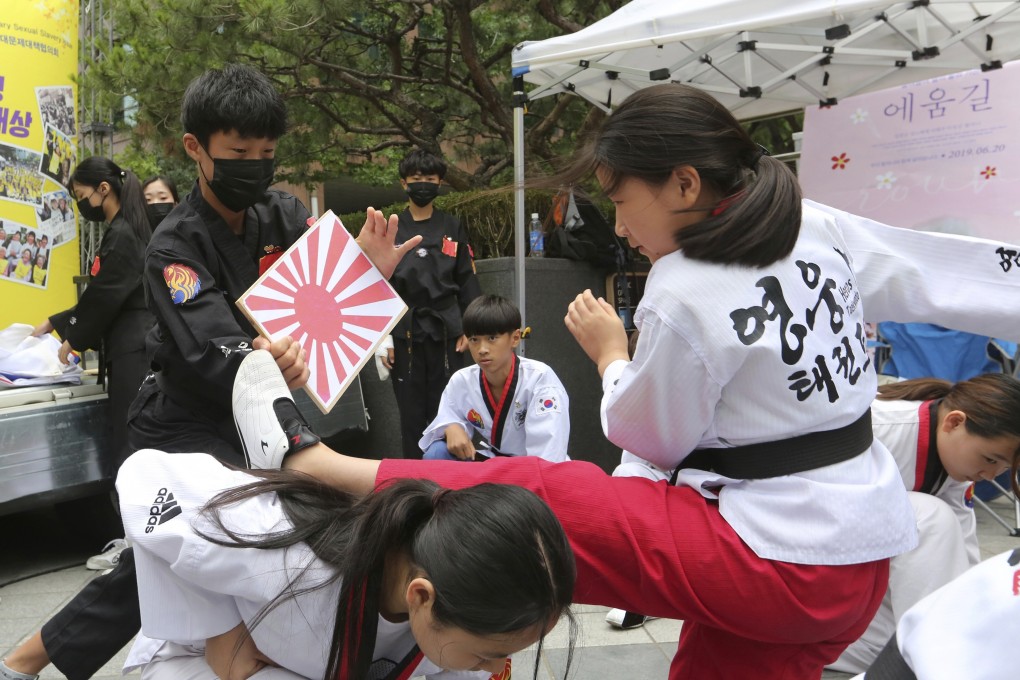Advertisement
Explainer | Explained: what’s driving Japan’s escalating feud with South Korea?
- Tokyo’s decision to restrict exports of hi-tech materials to Seoul and a simmering row over forced labour have sent the relationship between the two countries tumbling
- With no end in sight to the spat, the trade tensions could lead to higher prices for customers globally, analysts warn
Reading Time:5 minutes
Why you can trust SCMP

Relations between Japan and South Korea have hit rock bottom in recent weeks as an unresolved dispute over Korean forced labourers has spiralled into an escalating spat over trade.
Advertisement
The dispute, which comes amid the ongoing trade war between the United States and China, has economists sounding the alarm about disruption of technology supply chains and knock-on effects for the global economy.
How did the spat begin?
Tensions between both sides escalated dramatically when Japan announced that from July 4, it would restrict exports of three materials used in South Korean smartphone chips and displays.
South Korean President Moon Jae-in’s administration accused Tokyo of retaliating against court orders telling Japanese companies to compensate forced labourers during Japan’s 1910-1945 colonial rule of the Korean peninsula.
Advertisement
Japan insists that all claims arising from its colonial rule were settled by the signing of a 1965 normalisation treaty that provided Seoul with US$800 million in economic aid and loans.
Tokyo has since cited national security concerns arising from Seoul’s “inadequate management” of exports of sensitive chemicals, including hydrogen fluoride, which can be used for the manufacture of chemical weapons by countries subject to international sanctions, such as North Korea.

Advertisement